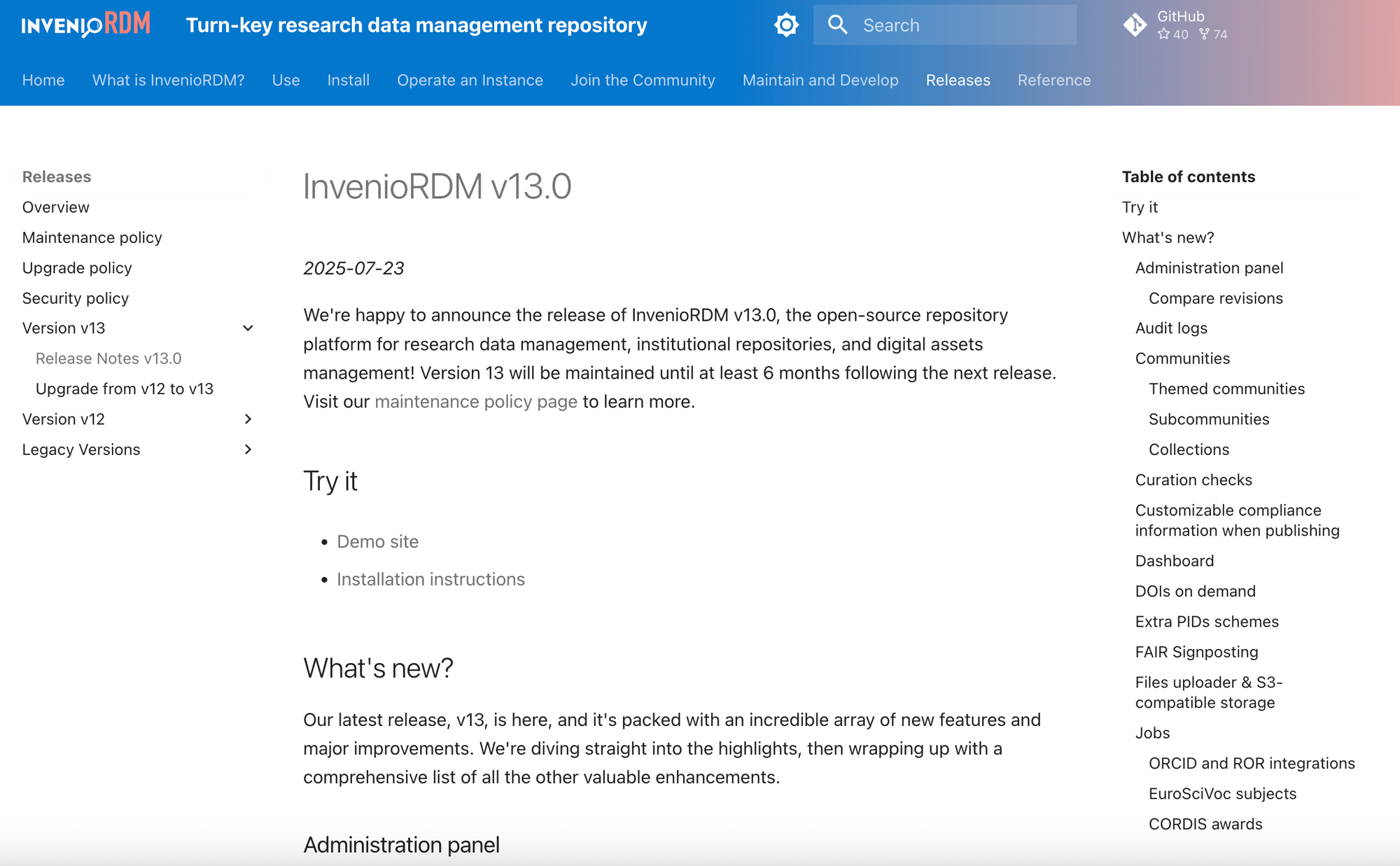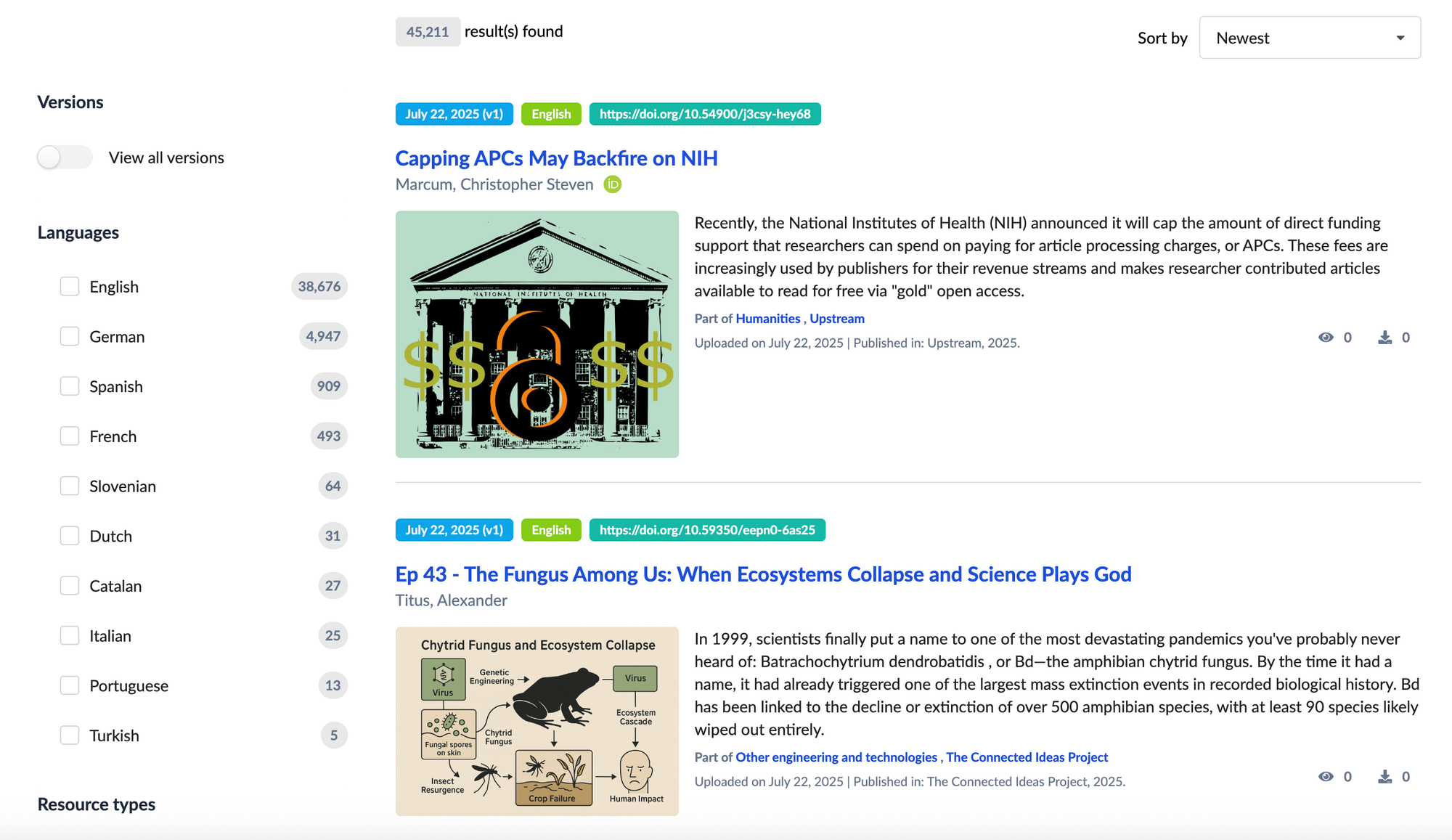The science blog archive Rogue Scholar relaunched today with a number of exciting new features, including major new software version, new hardware, new look and feed, and new authentication.
Major new software version
Version v13.0 of the InvenioRDM open source repository platform was released today. After running release candidate versions for a few weeks, Rogue Scholar today was relauched with version v13.0.

There are numerous changes in this new version described in detail in the release notes, and this will facilitate additional new features and bug fixes going forward.
Many of the major changes of v13.0 happened in the backend and are only visible to administrators, including an improved administration panel or audit logs. Other improvements, e.g. subcommunities and collections, have to be enabled and will happen in the next few months.
New hardware
Rogue Scholar is running on new hardware, which makes the service faster, easier to update, and cheaper to run. Using the Kamal deployment tool, Rogue Scholar now runs on dedicated hardware rented from Hetzner and located in Germany instead of via the cloud provider Fly.io.
New look and few
With this relaunch I fixed several long-standing issues with Rogue Scholar blog post list views:
- Show the DOI to allow users to jump directly to the blog post instead of needing to go to the Rogue Scholar archived version first,
- Show the language (15% of Rogue Scholar posts are in languages other than English), you can also filter search results by language,
- Show optional feature images, as is common for RSS feed readers,
- Support (a subset of) HTML in titles, e.g. superscript, bold or italic.

New authentication
No authentication is required to read Rogue Scholar content, and blog posts are automatically imported from participating blogs. Rogue Scholar user accounts currently have limited functionality, mainly allowing blog authors to submit blog posts to one or more topic communities, such as R (the programming language), book review, or interviews. Going forward, I will work with the Rogue Scholar community to improve what you can do with user accounts, including registering a new blog with the platform – currently still requiring an external form.
For this functionality, Rogue Scholar user accounts have to be easy to manage and secure. The built-in functionality of the InvenioRDM platform for local accounts allows users to self-manage their accounts and reset their passwords. And it allows administrators to block accounts that misbehave. Rogue Scholar has for a while supported login via ORCID accounts.
Today I have launched another authentication option, login via passkeys, using a self-hosted Pocket ID service. Passkeys are both easier to use and safer than usernames/passwords, and after a transition period to allow users to link their existing local accounts to ORCID and/or passkeys, Rogue Scholar will disable local accounts on September 15.

Please use Slack, email, Mastodon, or Bluesky if you have any questions or comments regarding this major update.
References
- Fenner, M. (2025, July 7). Upgrading to InvenioRDM v13. Front Matter. https://doi.org/10.53731/dd5h7-z5y55
- Fenner, M. (2025, June 27). Kamal deploys InvenioRDM Starter to production. Front Matter. https://doi.org/10.53731/m7gng-jmm19


